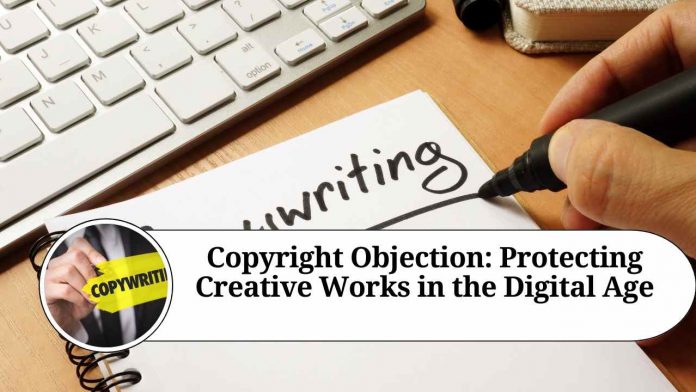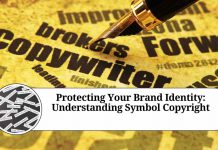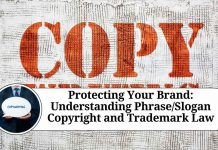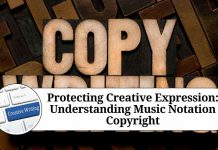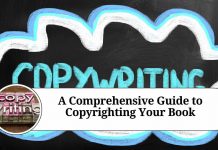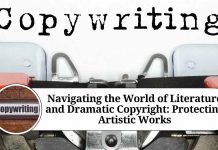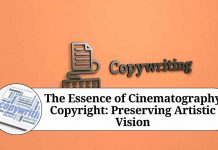Introduction
In the digital age, where information can be easily accessed and shared with a click of a button, copyright objection has become a crucial aspect of safeguarding the rights of creators. Copyright objection refers to the process of challenging the unauthorized use, reproduction, or distribution of copyrighted material. This blog post aims to shed light on the significance of copyright objection and the various ways individuals and organizations can protect their creative works.
Understanding Copyright
Copyright is a legal concept that grants exclusive rights to creators over their original works of authorship. These works can include literary, artistic, musical, or dramatic creations. The purpose of copyright is to encourage creativity and provide creators with the incentive to produce new and innovative works.
Copyright grants creators a bundle of exclusive rights, such as the right to reproduce the work, distribute it, publicly display or perform it, and create derivative works. These rights are automatically conferred upon the creator once their work is fixed in a tangible medium, such as writing it down or recording it.
The Need for Copyright Objection
Despite the existence of copyright laws, infringement and unauthorized use of creative works remain prevalent. Copyright objection plays a crucial role in upholding the rights of creators and ensuring fair compensation for their efforts. By objecting to copyright infringement, creators can protect their economic interests, maintain control over their works, and preserve their creative integrity.
Methods of Copyright Objection
- Cease and Desist Letter: When an individual or organization becomes aware of copyright infringement, they can send a cease and desist letter to the infringing party. This letter serves as a formal notice demanding the immediate cessation of infringing activities. It also outlines the legal consequences if the infringing party fails to comply.
- Digital Millennium Copyright Act (DMCA) Takedown Notice: Online platforms and service providers often have mechanisms in place to address copyright infringement. Under the DMCA, copyright owners can submit a takedown notice to internet service providers, requesting the removal of infringing content. This process allows copyright holders to combat infringement in the digital realm effectively.
- Legal Action: In severe cases of copyright infringement, legal action may be necessary. Copyright owners can file a lawsuit against the infringing party, seeking damages and an injunction to halt further unauthorized use of their work. Legal action should be considered as a last resort, as it can be time-consuming and expensive.
Preventing Copyright Infringement
While copyright objection is essential, taking proactive measures to prevent infringement is equally crucial. Here are a few preventive steps creators can take:
- Registration: Although copyright protection exists automatically, registering creative works with the relevant copyright office provides additional benefits. Registration offers a public record of ownership, strengthens the creator’s legal position, and enables them to seek statutory damages and attorney’s fees in case of infringement.
- Watermarking and Metadata: Adding visible or invisible watermarks to digital content and embedding metadata containing copyright information can deter potential infringers. These measures serve as a reminder that the work is protected and can assist in proving ownership in case of dispute.
- Licensing and Permissions: Granting licenses and permissions for the authorized use of creative works allows creators to control how their works are used and ensures they receive appropriate compensation. Clearly outlining the terms and conditions of use in licensing agreements helps establish legal boundaries.
Conclusion
In an era characterized by easy access to information and widespread digital sharing, copyright objection plays a vital role in protecting the rights of creators. By actively objecting to copyright infringement and taking preventive measures, creators can safeguard their intellectual property, preserve their creative integrity, and continue to contribute to the vibrant tapestry of human creativity.
Other Related Blogs: Section 144B Income Tax Act
Frequently Asked Questions (FAQs)
Q. What is copyright objection?
Copyright objection refers to the process of challenging the unauthorized use, reproduction, or distribution of copyrighted material. It involves taking legal action or using other means to protect the rights of creators and prevent infringement of their intellectual property.
Q. What can be copyrighted?
Copyright can be granted to original works of authorship that are fixed in a tangible medium. This includes literary works, such as books and articles, artistic works like paintings and photographs, musical compositions, films, software code, and more.
Q. How can I know if my work has been infringed?
Monitoring your work and identifying infringement can be challenging, especially in the digital realm. However, there are a few steps you can take. Conduct periodic online searches, utilize plagiarism detection tools, keep an eye on popular platforms and websites, and encourage your audience to report any unauthorized use of your work.
Q. What should I do if I find someone infringing my copyright?
If you discover copyright infringement, there are several steps you can take. Start by gathering evidence of the infringement, such as screenshots or copies of the infringing material. Then, consider sending a cease and desist letter to the infringing party, requesting them to stop using your work. If necessary, you may need to escalate the matter by submitting a DMCA takedown notice to relevant internet service providers or seeking legal advice.
Q. Should I register my work with a copyright office?
While copyright protection exists automatically upon the creation of an original work, registering your work with a copyright office offers additional benefits. Registration provides a public record of ownership and can be useful in enforcing your rights. It also allows you to seek statutory damages and attorney’s fees in case of infringement.
Q. Can I object to copyright infringement on social media platforms?
Yes, social media platforms typically have procedures in place to address copyright infringement. You can report copyright violations to the platform by submitting a DMCA takedown notice or using their designated reporting mechanisms. Be prepared to provide evidence of your ownership and the infringement when making your complaint.
Q. What is the difference between a cease and desist letter and a DMCA takedown notice?
A cease and desist letter is a formal notice sent directly to the infringing party, demanding them to stop the infringing activities. It often outlines the legal consequences if the infringement continues. On the other hand, a DMCA takedown notice is a legal notice sent to internet service providers, requesting them to remove infringing content from their platforms.
Q. Can I use copyrighted material under fair use?
Fair use is a legal doctrine that allows limited use of copyrighted material without permission from the copyright owner. The determination of fair use depends on various factors, including the purpose and character of the use, the nature of the copyrighted work, the amount used, and the effect on the potential market for the original work. It is advisable to consult with a legal professional to assess whether your use qualifies as fair use.

